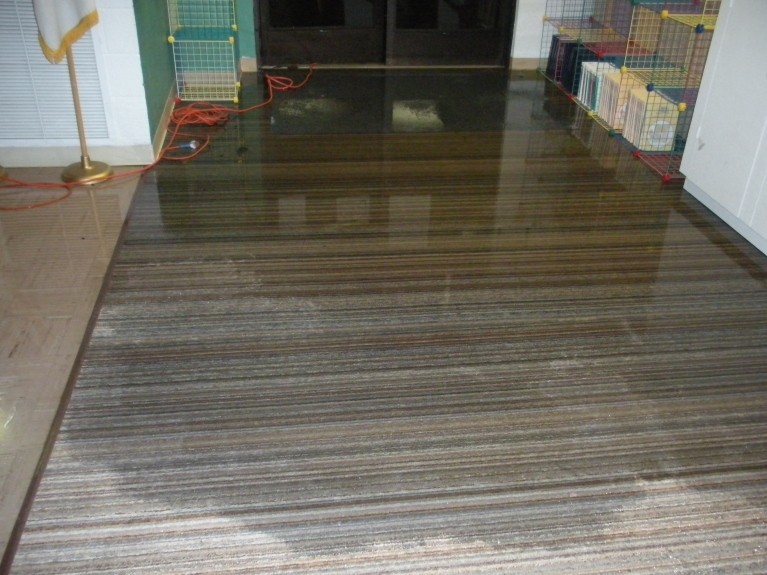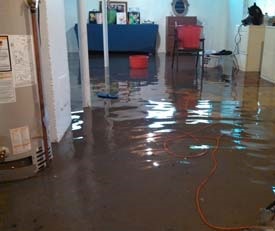Important Steps Homeowners Need to Implement While Dealing with Malfunctioning Hot Water Systems
Important Steps Homeowners Need to Implement While Dealing with Malfunctioning Hot Water Systems
Blog Article
This great article below on the subject of What Do You Do When Your Water Heater Bursts? is unquestionably enjoyable. Check it out for your own benefit and figure out what you think about it.

Whether it is located in the basement or a different area, broken water heaters can trigger stress and anxiety. A basic system holds 80 gallons, so an overnight leak will certainly result in a flood. This causes significant home damage with drenched wall surfaces and also floorings. Besides, having no warm water supply is also bothersome. If you are handling these problems, keep in mind of the following:
Shut Down Power Source
Prior to calling the plumber, shut off a gas water heater by turning the temperature level dial. This will protect against electrocution, particularly if there is a leak as water is a conductor. Typically, the heating component shuts off when the water strikes a specific temperature.
Cut Off the Cold Water Supply
Cut off the containers touch water supply from the resource. When your container is in good problem, the cool water stops loading up when the tank is full. If you can not locate it or reach it, you should transform off that main water supply line outside your home.
Call the Plumber
After doing the very first 2 security actions, you must call your plumber to come right away to repair a burst water heating system. There are usually signs that your aging water heater has debris accumulation in the interior.
Rather, as soon as you identify these indicators, have a specialist come to inspect your water heating unit give thanks to. Usually, water heating systems have a lifespan of regarding 8 to 12 years.
Tidy up Property
After calling the plumber, paper damages by taking notes and photos so you can declare your home owner's insurance. From there, start the immediate cleanup. Take out any important possessions to prevent further saturating. After that, get rid of any kind of standing water to stop mold and mildew and also mold development. Use that to drain the water if you have a submersible water pump. Otherwise, the standard bucket approach will certainly also function. Try to wipe out everything, consisting of baseboards and also wall surfaces. If you have an electric fan as well as dehumidifier, maintain them running to maintain air circulating. This will certainly help discourage mold and mildew development.
Remember, if you discover any type of problems with your water heater, call the pros as soon as possible. You can not take this trouble gently since a damaged thermostat can increase water temp to an alarmingly high level, bring about unexpected burns. A damaged heating system pressure safety valve can likewise cause an explosion. For best results, obtain a yearly check so your system obtains examined, cleansed, drained, and also filled up, guaranteeing optimum performance.
Whether it is situated in the cellar or a different area, busted water heating systems can create stress and anxiety. Prior to calling the plumber, closed off a gas water heating system by transforming the temperature level dial. After doing the very first two security steps, you have to call your plumber to come right away to repair a fractured water heating system. If you have a completely submersible water pump, make use of that to drain the water. Keep in mind, if you observe any kind of concerns with your water heater, call the pros right away.
8 REASONS YOUR HOT WATER HEATER IS NOT WORKING & HOW TO FIX
Water Heater Problems & Solutions
Loose or Damaged In-Line Valve
Unlike a water leak near the bottom of your water tank, a water leak on top of your system can be easily fixed. A common cause of water tank leaks includes a loose in-line valve. This is a handle that is located at the top of the water tank that is engineered to activate or deactivate the flow of water. To fix this problem, you will need to secure the nut that holds the ball or in-line valve in its location. If the leak becomes more severe once it is tightened, you will be required to travel to your local hardware store to purchase a new in-line valve for your water heater.
Damaged Pressure Relief Valve
Most types of water heaters are equipped with a pressure relief valve that is engineered to discharge pressure from the water tank when it becomes too high. If this valve on top of your water heater begins to leak, we recommend purchasing a new one online or from your local store. The process of removing and replacing pressure relief valves is not complicated.
No Warm Water
If you have an electric water heater in your home, the most typical cause of a lack of warm water is a broken heating element. Your water heater is equipped with two heating elements that are tasked with heating incoming water in the water tank. Once a heating element begins to malfunction, you will have little to no hot water to use for showering, cleaning, and laundry.
Low Supply of Hot Water
Are you continuously running out of warm water? This issue may be a byproduct of a cracked dip tube. This tube is engineered to push cold water to the base of your water tank to be heated. Once a crack or hole begins to form in the dip tube, the incoming supply of cold water may be released near the top or middle of your tank. As a result, the cold water on top of the tank will be sent to the faucets and showers in your house. This hot water heater problem can only be fixed by replacing the dip tube on your system. Since the process of installing a new dip tube is complex, we recommend calling a certified technician for help.
A low supply of warm water may also be a signal of excess sediment buildup in your water tank. As your water heater reaches the middle of its life cycle, minerals in water including magnesium and calcium will begin to collect at the base of the water tank. As the minerals continue to grow, there will be less room in the water tank to store hot water. To resolve this problem, flush your water heater to remove the excess minerals.
Water is Too Warm or Cold
If the water in your shower feels uncomfortable hot or cold, you can adjust the temperature of your water by changing the settings on your thermostat. Setting the temperature to 120 degrees Fahrenheit may help you save money on your utility bills. This is an excellent temperature to use if you’re worried about scalding or skin irritation. Does this temperature feel too cold? You may also adjust the thermostat to 140 degrees Fahrenheit to make your showers more pleasant. If your hot water heater is not working when you change the temperature, this is an indicator of a broken thermostat. Immediately find a certified plumbing or heating contractor in your area to repair or replace your thermostat.
Low Water Pressure
Low water pressure is not always caused by a malfunctioning water heater. If you live in an older home with smaller water pipes, the flow of water will be restricted prior to reaching our kitchen or bathroom skins. The only way to eliminate this hot water heater problem is to connect new ¾-inch water lines to your system. Another type of problem that may negatively impact your water pressure includes calcium deposits in water pipes.
As magnesium and calcium begin to form in your pipes, the diameter of your water lines will become smaller. As a result, the warm water from your water heater will not be able to travel in an efficient manner to your sinks or appliances. Since the process of replacing water pipes includes removing drywall, an average homeowner that does not have a plumbing license will not be able to fix this hot water heater problem.
https://www.wmhendersoninc.com/blog/8-reasons-your-water-heater-is-not-working-how-to-fix/

As a passionate reader on Water Heater Burst, I think sharing that chunk was a smart idea. Be sure to take the time to distribute this blog posting if you enjoyed it. Many thanks for your time. Visit us again soon.
Secure your home, ring now. Report this page